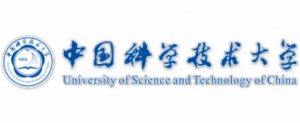Quantum News Briefs March 17: SMART Building Security: Transitioning To Post-Quantum Cryptography; UK Chancellor plans £1M annual AI prize, quantum investments & £900M ‘exascale’ computer; Chinese scientists report new record in high-rate quantum key distribution + MORE

Quantum News Briefs March 17: SMART Building Security: Transitioning To Post-Quantum Cryptography; UK Spring Budget: Chancellor plans £1M annual AI prize, quantum investments and a new £900M ‘exascale’ computer; Chinese scientists report new record in high-rate quantum key distribution + MORE.
SMART Building Security: Transitioning To Post-Quantum Cryptography

Commercial real estate SMART building owners should take action to partner with vendors and create a roadmap for implementing post-quantum cybersecurity measures. Forbes Technology Council Member Michelle Galvani who is CEO of SonKsuru has authored an important article in Forbes for SMART building owners to transition to post-quantum cybersecurity. Quantum News Briefs summarizes.
The following action items can help building owners build a culture of post-quantum cybersecurity and ensure that their buildings and tenants are protected against cyber threats.
1. Start communicating the importance of post-quantum cybersecurity: As building owners, communicate the importance of post-quantum cybersecurity to tenants and everyone involved in the management of the building.
2. Start assessing current cybersecurity measures: Determine which systems need to have post-quantum cybersecurity first and prioritize system and network upgrades.
3. Start identifying building vendors: Identify vendors starting to pivot or already offering post-quantum cybersecurity solutions.
4. Partner with building vendors: Partner with building vendors to create a roadmap for transitioning to post-quantum cybersecurity software, hardware and devices. This roadmap should include an assessment of current systems, a plan for implementing post-quantum cybersecurity measures and a timeline for completing the transition.
5. Invest in training and education: Invest in training and education for building managers and staff to ensure they are prepared to implement and maintain post-quantum cybersecurity measures.
6. Test and evaluate post-quantum cybersecurity measures.
7. Monitor and update the post-quantum cybersecurity roadmap.
Click here to read Galvani’s article in-entirety.
UK Spring Budget: Chancellor plans £1M annual AI prize, quantum investments and a new £900M ‘exascale’ computer
 Ingrid Lunden, writer and editor for TechCrunch, based out of London wrote about the U.K.’s Chancellor of the Exchequer’s March 15 announcement about string of funding injections into the country’s technology sector. Quantum News Briefs summarizes.
Ingrid Lunden, writer and editor for TechCrunch, based out of London wrote about the U.K.’s Chancellor of the Exchequer’s March 15 announcement about string of funding injections into the country’s technology sector. Quantum News Briefs summarizes.
The U.K.’s Chancellor of the Exchequer Jeremy Hunt’s spring budget announce a string of funding injections into the country’s technology sector. They include a new quantum computing hub; an annual £1 million prize called the “Manchester Prize” for AI research; and £3 billion in investments in “high growth” business in the next 10 years.
Another big tech focus in the budget today was quantum technology. the U.K. is setting some ambitious targets here, with plans to invest up to £2.5 billion over the next 10 years on quantum. That funding will cover not just engineering and research investments, but also funding for businesses that are investing in quantum technologies and pilot projects, as well as investment into the first steps of what quantum technology regulation might look like.
It also plans to put £900 million into the building of what it described as an “exascale supercomputer” to work on research and run projects. It’s notable that this wasn’t described as a quantum computer, and it may well not be. Likely there will be debates and bids for different approaches when and if this project takes shape.
The announcements are coming in the wake of the Silicon Valley Bank crisis — the company’s U.K. subsidiary was snapped up by incumbent HSBC earlier this week. Click here to read the original article in-entirety in TechCrunch.
Chinese scientists report new record in high-rate quantum key distribution
 Chinese scientists have developed a high-speed quantum key distribution system to generate secret keys at a rate exceeding 110 Mb/s over a 10 km standard optical fiber, setting a new world record in the field, according to March 15 China Daily. Quantum News Briefs summarizes.
Chinese scientists have developed a high-speed quantum key distribution system to generate secret keys at a rate exceeding 110 Mb/s over a 10 km standard optical fiber, setting a new world record in the field, according to March 15 China Daily. Quantum News Briefs summarizes.
It is of great significance to the large-scale application of quantum communication and quantum network, according to Xu Feihu, a professor at the University of Science and Technology of China (USTC).
The research findings were also recently published in the journal Nature Photonics.
QKD can provide fundamentally proven secure communication. The secret key rate (SKR), the rate at which the secret key is generated, is a key figure of merit for the application of any QKD system, which has so far been limited to about a few megabits per second.
Xu said that previously the highest SKR among the international academic community was about 10 Mb/s over a 10 km standard optical fiber.
A research team led by Chinese physicists Pan Jianwei and Xu Feihu from the USTC, in collaboration with researchers from other Chinese institutes and universities including the Shanghai Institute of Microsystem and Information Technology of the Chinese Academy of Sciences, the Jinan Institute of Quantum Technology and the Harbin Institute of Technology, developed a QKD system that is able to generate secret keys at a record high SKR of 115.8 Mb/s over a 10 km standard optical fiber, and distribute keys over up to 328 km of ultralow-loss fiber. The system has been running stably for over 50 hours. Click here to read the original China Daily article.
South Korea’s National Intelligence Service to screen & authorize procedures for quantum cryptography communications products
 South Korea’s National Intelligence Service is about to initiate screening and authorization procedures regarding quantum cryptography communications products. Quantum News Briefs summarizes.
South Korea’s National Intelligence Service is about to initiate screening and authorization procedures regarding quantum cryptography communications products. Quantum News Briefs summarizes.
The first products to be covered by the NIS are likely to include SK Telecom’s quantum random number generator (QRNG). The company set up its quantum technology research center in 2011 and acquired IDQ in Switzerland in 2018. SK Telecom’s QRNG chip was used in Samsung Galaxy Quantum smartphones. More recently, it developed the Quantum Cryptography One Chip as a combination of the QRNG chip and a semiconductor device for quantum cryptography.
In addition, quantum key distribution-based dedicated line services have been released by SK Telecom and KT and a dedicated line service based on post-quantum cryptography (PQC) has been released by LG U+, which developed the world’s first PQC-based re-configurable optical add-drop multiplexer in June 2020.
Those technologies are expected to be adopted in multiple overseas markets once employed for quantum cryptography communications networks in the public sector of South Korea. At present, a quantum communications infrastructure project is underway in the European Union and its commercial network for quantum cryptography is likely to be similar in configuration to that of South Korea. In addition, some Asian countries are considering building quantum cryptography networks based on the South Korean model. Click here to read original KoreaTechToday article.
Sandra K. Helsel, Ph.D. has been researching and reporting on frontier technologies since 1990. She has her Ph.D. from the University of Arizona.



















